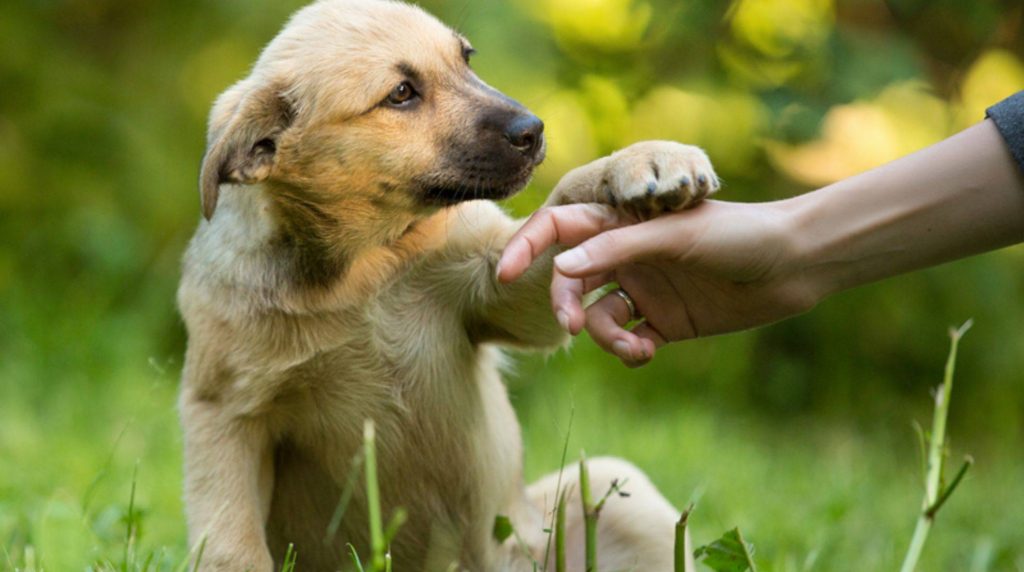Would you like to train your dog, but without a dog school? This is quite possible if your four-legged friend is not prone to behavioral problems. However, dog breeds with unique training needs, such as some working dogs, should only be trained at home if you have the appropriate experience.

Does a dog have to go to dog school? Of course, there is no compulsory schooling for four-legged friends as there is for human children, so you can also try to educate your dog without a dog school. What you have to consider and when professional help with dog training is offered is read below.
Raise a dog without a dog school: requirements
Whether or not you can train your dog without a dog school depends on you on the one hand and your four-legged friend on the other. It cannot be said in general that owners who have experience with dogs can automatically do without a dog school. There are also a few dog breeds that you generally do not need professional help with dog training. Like humans, dogs have different personalities and temperaments, even if they bring breed-specific tendencies to their character. It is best to listen to your gut feeling – if you have the impression that the bond between you and your animal friend is characterized by trust, your dog willingly participates in the training and pays attention to you, you do not need a dog school.
However, before purchasing and in the initial period after your dog arrives in its new home, you can do a few things to ensure that the best possible relationship develops between you. Find out carefully and comprehensively about the dog breeds you like and see whether the four-legged friend suits you and your circumstances. Can you provide your dog with the activity, time, care, and housing it needs? Alternatively, dogs from animal shelters or animal welfare organizations are also happy if you decide to adopt them. The employees in the organizations usually know their protégés well and will be glad to advise you which dog is suitable for you. Give puppies, in particular, enough time to get used to it, but stick to the rules – if your dog isn’t allowed on the sofa, he’s not allowed to be a baby either.
Are some dogs easier to train without dog training than others?
In principle, any dog can be trained, but with some breeds, this is a little easier than with others due to their breeding – although there are exceptions that prove the rule. The Labrador or Golden Retriever, for example, was bred to have a so-called “will to please,” the need to please their owners. Therefore, they are easier to motivate to cooperate than, for example, Jack Russell Terriers, Dachshunds, or Weimaraners. They are also supposed to make decisions independently when hunting and therefore have a certain stubbornness. Experienced dog owners are usually better able to handle this characteristic tendency than beginners.
Dog breeds can also be divided into working dogs and companion dogs, among other things: working dogs – for example hunting dogs, sled dogs, shepherd dogs – usually need a lot of work and a task to be happy. Companion dogs—like most toy dog breeds—were bred primarily as pets to keep people company and content. They are usually a bit easier to train. However, they also need species-appropriate activities and learn rules of conduct and commands – otherwise, they will have to attend a dog school one day.
What do dogs learn in dog school?
There is also no general answer to what dogs learn in dog school. There are many different dog schools with varying training methods, parenting philosophies, and approaches. In addition, the terms dog school and dog trainer are not uniformly regulated by law, so there can also be “black sheep” among them. If you observe aversive training methods at a dog school, drills and violence are used; you should look for another school. It can also become a problem if the dog school only uses positive reinforcement in the form of treats as a training method – you run the risk that your dog will only show the desired behavior if he gets an edible reward for it afterward.
Good, reputable dog schools and dog trainers try to strengthen the bond between humans and animals. They help you as the owner understand your dog better and express your commands and signals so that your four-legged friend understands what you want from him. A mix of different, non-violent training methods is beneficial, such as education through body language, verbal commands, play and observation, and the right amount of rewards. In small groups, your dog learns species-appropriate social behavior – this works best if the groups are carefully put together so that the size and power ratios are an excellent match to prevent bullying. Otherwise, dog schools usually also offer special dog sports courses if you want fun with your four-legged friend.
When does a dog have to go to dog school?
Here you can best rely on your gut feeling again. If you notice that your dog doesn’t understand you and you don’t know what to do, a specialist can help you. If behavioral problems have already crept in, individual care with a dog trainer is recommended instead of a dog school. Don’t be shy if you’re at your wit’s end on how to train your dog without a dog school.







